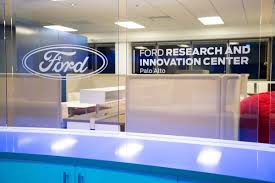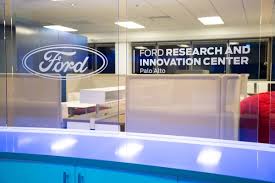
The first fully autonomous Ford Fusion Hybrid sedans would roll out from the Ford Research and Innovation Center Palo Alto at the company expects the cars to take California streets next year.
Autonomous vehicle research is being expanded by Ford's Research and Innovation Center in Palo Alto. The research includes developing camera-based object recognition using high-performance graphics processing units (GPUs) for real-time image processing.
In order to test autonomous vehicles on public roads, Ford is officially enrolled in the California Autonomous Vehicle Testing Program. Ford plans to take the company to the next level in connectivity, mobility, autonomous vehicles, the customer experience, and data and analytics as the company further advances its 10-year autonomous vehicle development program and a key element of Ford Smart Mobility through the proposed testing next year.
With a team of more than 100 researchers, engineers and scientists, Ford Research and Innovation Center Palo Alto is one of the largest automotive manufacturer research centers in the region. Ford has been present in the Silicon Valley since 2012 and the new research lab that opened in January has expanded that presence of the company.
People from the technology sector comprise eighty percent of the Palo Alto team who had joined Ford. Ford employees from the United States, China, Germany and Australia, primarily concerned with automotive engineering and design expertise, comprise the remaining 20 percent are of the team..
“Our Palo Alto team has grown significantly this year, using research and innovation to explore and develop future mobility solutions,” said Mark Fields, Ford president and CEO.
“We’re attracting top talent from around the world to join our team in Silicon Valley, including employees from local technology companies and universities who want to make people’s lives better by changing the way the world moves,” he added.
From a 15-person office, Ford has expanded its Silicon Valley facility to comprise of a team of 100-plus-person research and development center.
This year the research centre has been engaged in the research of autonomous vehicle virtual test drive. Virtual interaction between an autonomous car and pedestrians is allowed by this study. To better understand and develop responses to some of the unexpected things that can happen on the road, the study replicates real-world situations.
Fusion of various forms of sensor functions also form part of the research at this lab. This research provides a 360-degree view of the car’s surroundings including street signs, other vehicles and pedestrians through the fusion of a number of sensors on autonomous vehicles that detect and track objects in the vehicle’s view
University of California-Berkeley, Carnegie Mellon University, Santa Clara and San Jose State are among the educational institutions that Ford has cultivated relationships with this year. With a plan of 13 projects covering all five areas of Ford Smart Mobility, the company is further expanding its strategic research collaboration with Stanford in 2016.
“Having a strong presence in Silicon Valley allows us to further accelerate our research on a wide range of technologies, and apply our insights to create real-world mobility solutions,” said Ken Washington, Ford vice president, Research and Advanced Engineering.
(Source:www.streetinsider.com)
Autonomous vehicle research is being expanded by Ford's Research and Innovation Center in Palo Alto. The research includes developing camera-based object recognition using high-performance graphics processing units (GPUs) for real-time image processing.
In order to test autonomous vehicles on public roads, Ford is officially enrolled in the California Autonomous Vehicle Testing Program. Ford plans to take the company to the next level in connectivity, mobility, autonomous vehicles, the customer experience, and data and analytics as the company further advances its 10-year autonomous vehicle development program and a key element of Ford Smart Mobility through the proposed testing next year.
With a team of more than 100 researchers, engineers and scientists, Ford Research and Innovation Center Palo Alto is one of the largest automotive manufacturer research centers in the region. Ford has been present in the Silicon Valley since 2012 and the new research lab that opened in January has expanded that presence of the company.
People from the technology sector comprise eighty percent of the Palo Alto team who had joined Ford. Ford employees from the United States, China, Germany and Australia, primarily concerned with automotive engineering and design expertise, comprise the remaining 20 percent are of the team..
“Our Palo Alto team has grown significantly this year, using research and innovation to explore and develop future mobility solutions,” said Mark Fields, Ford president and CEO.
“We’re attracting top talent from around the world to join our team in Silicon Valley, including employees from local technology companies and universities who want to make people’s lives better by changing the way the world moves,” he added.
From a 15-person office, Ford has expanded its Silicon Valley facility to comprise of a team of 100-plus-person research and development center.
This year the research centre has been engaged in the research of autonomous vehicle virtual test drive. Virtual interaction between an autonomous car and pedestrians is allowed by this study. To better understand and develop responses to some of the unexpected things that can happen on the road, the study replicates real-world situations.
Fusion of various forms of sensor functions also form part of the research at this lab. This research provides a 360-degree view of the car’s surroundings including street signs, other vehicles and pedestrians through the fusion of a number of sensors on autonomous vehicles that detect and track objects in the vehicle’s view
University of California-Berkeley, Carnegie Mellon University, Santa Clara and San Jose State are among the educational institutions that Ford has cultivated relationships with this year. With a plan of 13 projects covering all five areas of Ford Smart Mobility, the company is further expanding its strategic research collaboration with Stanford in 2016.
“Having a strong presence in Silicon Valley allows us to further accelerate our research on a wide range of technologies, and apply our insights to create real-world mobility solutions,” said Ken Washington, Ford vice president, Research and Advanced Engineering.
(Source:www.streetinsider.com)





